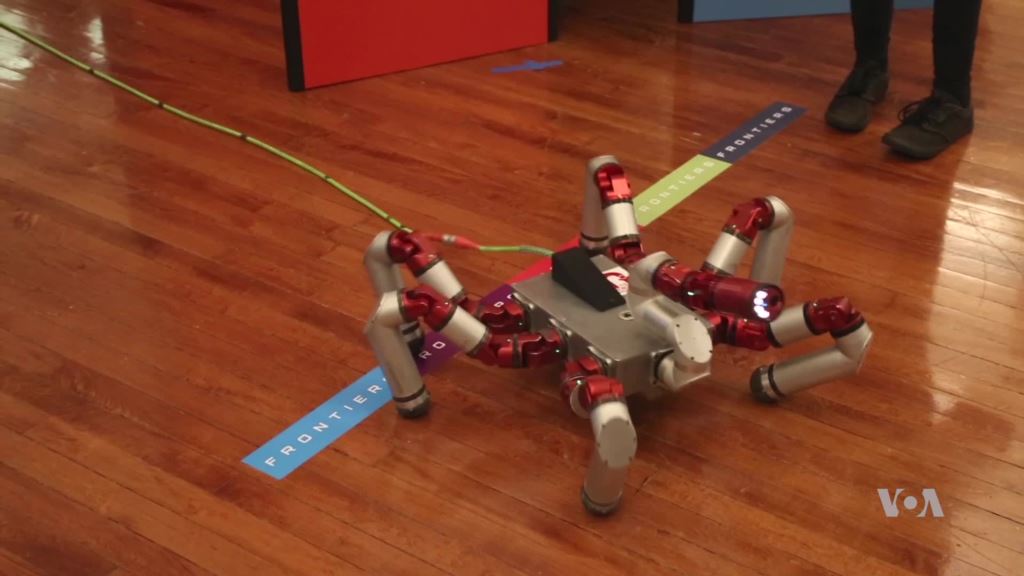Is technology making us more or less human? At the White House Frontiers conference in the U.S. city of Pittsburgh, scientists tackled the question using robots and machine intelligence technologies. VOA’s Tina Trinh reports.
Believe it or not, these strange-looking robots are really you..
Well… More like an extension of you..
“They can get into areas where humans really can’t fit or be dangerous predicament to go.” Matthew Tesch/Staff Engineer / Carnegie Mellon University
That means the ability to explore collapsed buildings for search-and-rescue efforts or going airborne with flying robots like this one which help engineers inspect bridges and dams safely.
“We see that the robot acting at the apprentice to the inspector an inspector tells the robot to go and collect data” Burcu Akıncı/CEE Faculty / Carnegie Mellon University
For scientists at the recent Frontiers Conference in Pittsburgh Pennsylvania, the future combines human intelligence with machine intelligence.
EYEWIRE is a game where players trace brain neurons to create a giant roadmap that could help researchers.
“The Human Brain has 85 billion neurons and with 10,000 active users. We trace maybe one to two neurons a day. We’re gonna be here a long time which is why we take the players input and we use it to train an artificial intelligence so that we can speed up that process.” Thomas Macrina / Phd Candidate / Princeton University
And since human limitations aren’t just physical, new technologies are also exploring our psyches.
“We’re not building technology that allows to have objective measures of something that can be really subjective emotions.” Louis-Philippe Morency / Asst. Professor / Carnegie Mellon University
Multisense tracks facial expressions and nonverbal cues to help clinicians diagnosed mental illnesses such as depression or PTSD (Post-traumatic stress disorder).
“They already have the knowledge of medical knowledge what they need is more of a technology to be able to sense in real-time these behaviors.” Louis-Philippe Morency / Asst. Professor / Carnegie Mellon University.
Technologies that have your back physically and mentally, it’s the next frontier.

